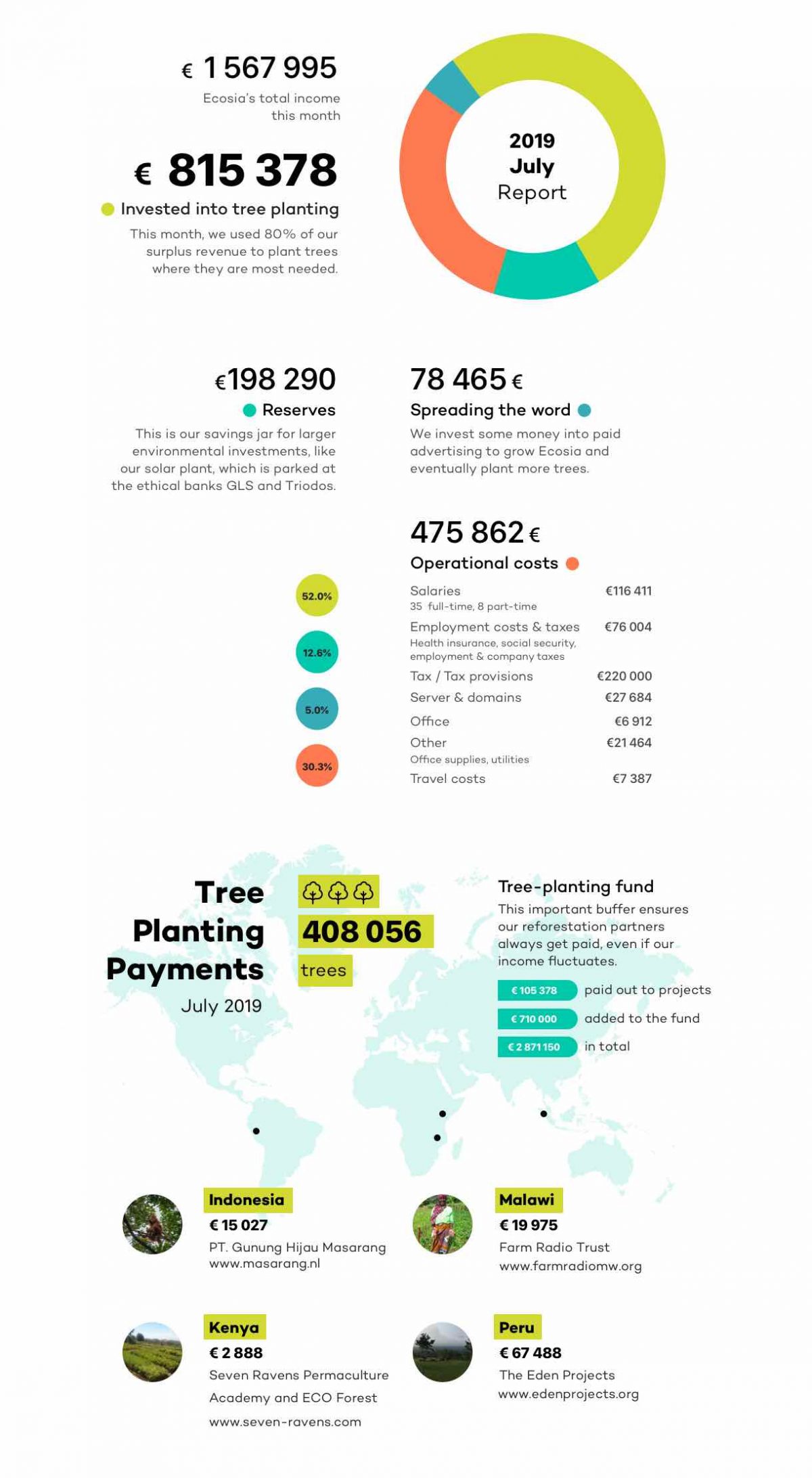
It also receives a monthly report showing the number of trees that have been planted by the whole team ,” state from Ecosia.
#ECOSIA DOWN INSTALL#
When a large organization makes Ecosia the default search engine for employees, it will receive a unique install link to track how many trees the organization is collectively planting with its searches. 22 cents divided by 0.5 cents makes about 45 searches until we can plant one new tree. It costs our tree planting partners about 0.22 EUR to plant a tree. From schools, universities, hospitals, charities, and multinational corporations, more and more people are demanding their organizations take action against climate change and switch to Ecosia to help plant tens of thousands of trees. Whats the goal of Ecosia on Campus Uni Lu Joanna Krupp, a psychology student at the University, recently launched a campaign Uni.lu on Ecosia. But here's the calculation: We know that Ecosia earns an average of 0.5 cents (EUR) per search. “Like the coronavirus, responding to the climate crisis requires leadership at all levels of society. To remove completely, we recommend you to use SpyHunter. That said, users have grown by 25% in the past year, with a recent survey estimating that over 80% are under the age of 29.Įcosia is now calling for a more unified effort from corporates and other organizations by making Ecosia the default search engine for employees. Nonetheless, it appears the COVID-19 crisis has impacted Ecosia’s advertising revenue with the income going down from €2.58m in February to €1.25m in May. And, in 2019, founder Christian Kroll made it legally irreversible for the company to be sold or for anyone to take profits out of it (through a steward-ownership structure). With 100 million planted trees every day 1771 tonnes of CO2 are removed from the air.įurthermore, in 2018, Ecosia started building its own solar plants and now all searches on the platform are powered by renewable energy. This is a tiny drop in the ocean compared with Googles estimated 5.6 billion searches per day, but Christian says he has grand ambitions.

By planting 100 million trees, we have sequestered up to 3.5 million tonnes of CO2, restored 35,271 hectares across 5 continents, protected hundreds of endangered species, and helped tens of thousands of people to build a better future for themselves and their communities,” reads a statement from the company.Īccording to Ecosia, it takes about 45 searches for a tree to be planted as a single search earns €0.005 on average and the cost for planting a tree is about €0.22. Today Berlin-based Ecosia says it has 15 million users. “In just 10 years, Ecosia has grown from a grassroots project into a world-leading tree-planting organization, reforesting with more than 500 native and biodiverse tree species, all across the globe. Now, the green enterprise announced it had planted its 100 millionth tree. However, since its start in 2009, the Berlin-based company has been giving the profits from this advertising revenue to planting projects around the world, in regions impacted by deforestation such as Brazil, Tanzania, and India. We did a little due diligence - basically, is Ecosia legit? (a reasonable question to ask in today’s environment of informational phantoms).As pretty much any other search engine Ecosia makes money out of ad clicks. All this just from choosing to do something good with your profits for the benefit of the whole planet. With something as unrelated to the environment as a search engine, we can plant millions and hopefully soon billions of trees, without asking for a single donation from any individuals, organisations or governments. It thus turns searching the internet into a means to a greater end rather than an end in itself.


What is innovative about Ecosia does not lie in the development of any new products or services, but rather in that it applies a social business model to an existing market (the search market is worth $70 billion a year). Our tree counter acts as a simple and constant reminder to all our users that even the smallest actions and choices can have a real impact. The search engine uses 80% of its profits from search ad revenue to fund reforestation projects in the world’s most threatened biodiversity hotspots, helping the environment and empowering local communities at the same time.Įcosia lets people all over the world choose to turn a daily habit, that of searching the web, into a force for good. Ecosia, the worlds largest not-for-profit search engine, is currently trying to save the last remaining stretch of the Hambach Forest from being cut down. From our friends at Atlas of the Future, a seemingly straightforward win: This search engine plants trees!Īs 6 million trees are cut down every day, Ecosia wants to show that with a sustainable social business model and community engagement, it is possible to reverse the tide of deforestation.


 0 kommentar(er)
0 kommentar(er)
